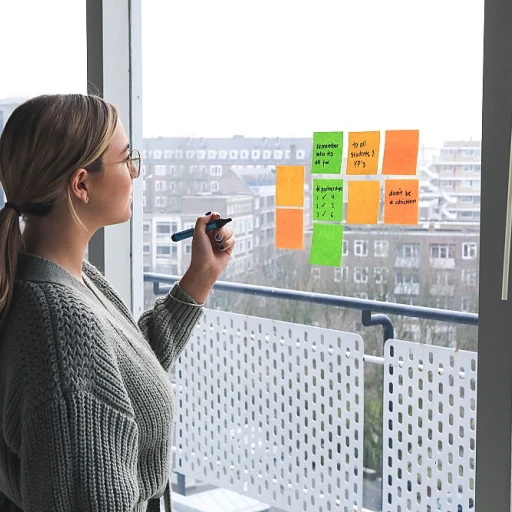
Understanding the Skills Gap
Recognizing the Importance of Identifying Skill Discrepancies
Understanding the skills gap within your team is vital. This step involves evaluating the current capabilities of your team members and identifying where deficiencies exist. It’s a crucial foundation for developing effective mentoring strategies and ensuring that each team member is equipped to handle the demands of their role. One effective way to assess your team’s skill levels is by conducting thorough evaluations and interviews. Use meaningful interview questions designed to gauge the strengths and weaknesses of your mentees. Active listening during these interviews is crucial; it allows you to better understand your mentees’ perspectives and uncover areas for development. Analyzing feedback from team members and incorporating constructive feedback is another effective approach. Open communication with your team enables you to understand the obstacles they face. By providing the right coaching and support, you can help them achieve their goals. In this context, problem solving and continuous development are key to bridging the gap. Encourage your mentees to engage in critical thinking and foster a mentoring relationship that promotes skill development through real-world examples and feedback sessions. To optimize your mentoring efforts, establishing regular check ins ensures that progress is continually tracked and that the mentorship relationship remains productive. As a mentor, your ability to adapt to changing needs and provide tailored support is essential for the success of your mentees. For further insights into crafting impactful mentorship questions, you may find insightful questions to ask your mentor for bridging the skills gap beneficial. This resource can provide additional guidance on how to effectively communicate and address skills gaps within your team.Identifying Skills Gaps in Your Team
Pinpointing Issues and Bridging the Divide
Understanding the existing skills gap in your team requires a keen awareness of the competencies your team members currently possess and those required to meet your organization's goals. Each team member comes with unique abilities and potential areas for growth. As a mentor, taking the time to evaluate behavioral aspects can provide insights into these gaps.
To effectively identify skills gaps, consider implementing a few key strategies:
- Conduct Skill Assessments: Utilize tools and methodologies that gauge both technical and soft skills, offering a comprehensive picture of each team member’s capabilities. This empowers you to tailor your mentoring approach. Listening actively during one-on-one meetings can further reveal underlying needs.
- Facilitate Open Communication: Encourage team members to voice their aspirations and challenges. Regular check-ins can foster constructive feedback and a supportive mentoring relationship. Open discussions can lead to the discovery of hidden talents or areas requiring additional coaching.
- Engage in Collaborative Problem Solving: Working alongside your team in solving day-to-day challenges can illuminate skills gaps that may not be evident in standard performance reviews. This collaborative approach also enhances your ability to offer targeted support and guidance.
Identifying the skills gap is an ongoing process and involves continuously refining your mentoring techniques. By integrating these strategies, you foster a nurturing environment for development, helping your mentees not only prepare for interviews but excel within their roles.
Developing a Mentorship Plan
Crafting a Tailored Mentorship Blueprint
To effectively bridge the skills gap within your team, developing a mentorship plan is crucial. This plan should be tailored to the unique needs of your team members and the specific skills they need to develop. A well-structured mentorship plan not only supports individual growth but also enhances the overall performance of your team.
Start by clearly defining the goals of your mentorship program. These goals should align with the skills gaps identified in your team. Consider the following steps to create a comprehensive plan:
- Assess Your Team's Needs: Understand your team members' current skill levels and identify areas for improvement. This involves active listening and open communication to ensure you accurately assess your team’s needs.
- Set Clear Objectives: Establish clear, achievable objectives for each mentee. These objectives should be specific, measurable, and time-bound to facilitate effective progress tracking.
- Choose the Right Mentors: Select mentors who possess the skills and experience necessary to guide your mentees. A good mentor should be able to provide constructive feedback and support mentees in their development journey.
- Develop a Structured Plan: Outline a structured plan that includes regular check-ins, coaching sessions, and feedback loops. This structure helps maintain momentum and ensures that both mentors and mentees stay on track.
- Incorporate Flexibility: While structure is important, flexibility is key to addressing unforeseen challenges and adapting to the evolving needs of your mentees.
By following these steps, you can create a mentorship plan that not only addresses the skills gap but also fosters a supportive and productive mentoring relationship. Remember, the ultimate goal is to enhance your team's ability to perform effectively in interviews and beyond.
Mentoring Techniques for Interviews
Refining Your Interview Mentorship Techniques
Mentoring your team for interviews involves more than just going through potential interview questions and answers. It’s about helping your mentees to develop the necessary skills to present themselves effectively. These efforts start with identifying the specific skills your team members need improvement on. Once you’ve assessed your team’s needs, the focus can shift to refine your mentoring techniques for better interview performance.- Active Listening and Open Communication: Start by practicing active listening with your mentees. This builds open communication, making mentees comfortable in sharing their thoughts, which in turn helps in honing their ability to answer questions naturally during an interview.
- Mock Interviews with Constructive Feedback: Conduct regular mock interviews with your team members. These practice sessions should reflect real interview scenarios to help mentees understand the dynamics. Don't forget to provide constructive feedback after each session to encourage development and improvement.
- Goal Setting and Progress Tracking: Work with your mentees to set clear, achievable goals regarding their interview skills. Regular check-ins will ensure that they stay on track, and provide opportunities for further mentoring based on the progress reported.
- Problem Solving and Decision-Making Skills: Encourage your mentees to develop problem-solving skills that are often required during interviews. Discuss scenarios where they might need to demonstrate these skills and support them with coaching and guidance.
Measuring Mentorship Success
Evaluating the Impact of Mentorship
To ensure your mentoring efforts are effective, it's crucial to measure the success of your mentorship initiatives. This involves assessing your ability to support your team members in achieving their development goals. Here are some strategies to help you evaluate the impact of your mentorship:
- Set Clear Objectives: At the outset, establish clear goals for both the mentor and mentee. These objectives should align with the skills gaps identified in your team and the overall development plan.
- Regular Check-Ins: Schedule consistent check-ins with your mentees to discuss progress and any challenges they might be facing. This open communication helps in understanding your mentee's needs and adjusting your approach accordingly.
- Feedback Mechanisms: Implement a system for providing constructive feedback. Encourage your mentees to share their thoughts on the mentoring relationship and how it could be improved. This two-way feedback loop is essential for continuous improvement.
- Performance Metrics: Use specific metrics to assess the development of skills in your team. This could include improvements in interview performance, problem-solving abilities, or other relevant skills.
- Mentor-Mentee Relationship: Evaluate the strength of the mentor-mentee relationship. A strong bond can significantly enhance the effectiveness of your mentoring efforts.
- Time Investment: Consider the time spent on mentoring activities and whether it aligns with the outcomes achieved. Efficient time management is key to a successful mentoring program.
By focusing on these areas, you can better understand your mentoring impact and make necessary adjustments to enhance the development of your team members. Remember, the goal is to foster a supportive environment where both mentors and mentees can thrive.
Continuous Improvement in Mentorship
Fostering a Culture of Continuous Learning
Mentorship isn't a one-time activity but an ongoing journey of growth and development. To ensure the success of your mentoring efforts, it's essential to embrace a mindset of continuous improvement. This involves establishing regular check-ins to review the progress towards the goals set by you and your mentee in the mentorship program.
Encourage open communication by asking reflective questions during these sessions. For instance, "What challenges are you facing at work?" or "How can I support you in achieving your objectives?" Such questions not only help you understand your mentee's current status but also show your commitment to their development.
Providing constructive feedback is another critical aspect. Team members should feel comfortable receiving and acting upon feedback, promoting a culture of trust and active listening. Your ability to offer guidance on improving interview skills, for example, can be pivotal in honing their responses to interview questions.
- Utilize tools and metrics to assess your mentorship's effectiveness regularly. This might include feedback surveys or informal reviews to gauge satisfaction.
- Encourage your mentees to provide feedback on the mentoring relationship. Their insights can reveal areas for your growth as a mentor.
- Observe how your team members apply learned skills in real scenarios, such as interviews or team meetings. This can be a reflection of successful mentorship.
A dynamic mentoring strategy continually evolves by adapting techniques, like problem solving methods or time-management skills, to align with development goals. As a team leader, your engagement should be constant, yet flexible, allowing mentees to thrive and contribute meaningfully to the team.













